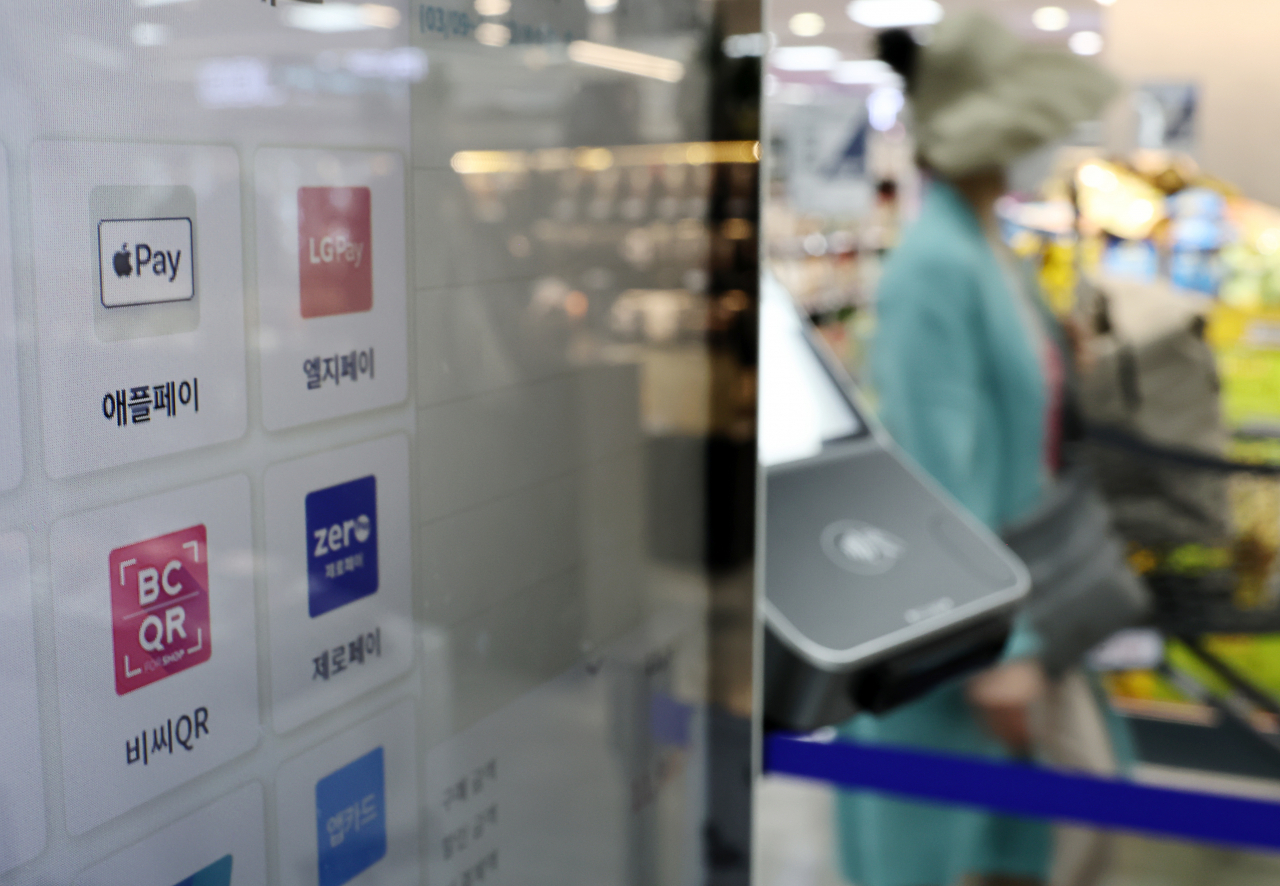[KH Explains] Will Apple Pay-backed Hyundai Card renew credit card rivalry?
Some 38,000 new members join Hyundai Card in January alone amid rumors on Apple Pay partnership
By Song Seung-hyunPublished : March 13, 2023 - 16:00

Ahead of the long-awaited Korean debut of Apple Pay later this month, all eyes are on whether Hyundai Card, the official partner of the mobile payment service for iPhones, will raise its market share to outpace bigger rivals Shinhan Card and Samsung Card.
Credit card companies compete head-on in a crowded market here. According to the Credit Finance Association, Shinhan Card was the largest credit card issuer with 19.6 percent as of the fourth quarter of last year, closely followed by Samsung Card with 17.8 percent, Hyundai Card with 16 percent and KB Kookmin Card at 15.4 percent.
Despite the mixed outlook for Apple Pay’s success in the land of Samsung Pay, it seems obvious there are high expectations among card users.
As of the end of January when speculation was running high for the imminent debut of Apple Pay, Hyundai Card’s membership soared to 11.39 million people, with some 38,000 members joining that month. Among the top seven credit card companies, Hyundai Card and Hana Card were the only companies to gain members in January.
“As we have seen in recent months, Apple Pay will definitely contribute to the expansion of Hyundai Card’s membership. We are also watching closely whether to adopt Apple Pay as well,” an industry official said on condition of anonymity.
Both Apple and Hyundai Card recently confirmed Apple Pay’s imminent debut, but the exact date has not yet been revealed. Amid ongoing regulatory reviews, industry watchers say the service could kick off later this month.
Korea is expected to be a tough market for Apple Pay. While almost 80 percent of smartphone users use Samsung or Android phones, iPhone users make up less than 20 percent.
A lack of infrastructure is also cited as a key concern, as there are a limited number of stores equipped with near-field communication readers. Among some 2.9 million stores here, only 60,000 to 70,000 are estimated to have NFC readers.
“It remains to be seen how many stores will be installing NFC readers for Apple Pay,” said another industry official who also wished to remain unnamed.
“Another factor is the payment function for public transportation. As far as we know, it’s not possible to use the service with Apple Pay for now,” he added.
Adding to the high-profile partnership with Apple Pay targeting young trendsetters in their 20s and 30s, Hyundai Card’s recent tie-up with American Express is expected to enhance its premium strategy.
Ahead of the end of its decade-old partnership with Samsung Card in April this year, American Express teamed up with Hyundai Card to issue three platinum cards. For the three cards featuring the signature portrait of a centurion, annual fees range from 100,000 to 1 million won ($77-$770).
Industry watchers remain cautious about the impact of the new partnership with American Express, considering Samsung Card’s long-held market dominance. Still, they agree Hyundai Card, which has struggled to elevate its market share, is likely to see a key breakthrough in members depending on the success of Apple Pay.
“Along with attracting millennial and Generation Z members through Apple Pay, this American Express deal will contribute to Hyundai Card attracting premium loyal clients. Depending on the success of the two-track strategy, Hyundai Card will be able to expand its market share further,” said Kim Dae-jong, a professor of business administration at Sejong University.



![[AtoZ into Korean mind] Humor in Korea: Navigating the line between what's funny and not](http://res.heraldm.com/phpwas/restmb_idxmake.php?idx=644&simg=/content/image/2024/04/22/20240422050642_0.jpg&u=)

![[Exclusive] Korean military set to ban iPhones over 'security' concerns](http://res.heraldm.com/phpwas/restmb_idxmake.php?idx=644&simg=/content/image/2024/04/23/20240423050599_0.jpg&u=20240423183955)

![[Herald Interview] Why Toss invited hackers to penetrate its system](http://res.heraldm.com/phpwas/restmb_idxmake.php?idx=644&simg=/content/image/2024/04/22/20240422050569_0.jpg&u=20240422150649)
![[Graphic News] 77% of young Koreans still financially dependent](http://res.heraldm.com/phpwas/restmb_idxmake.php?idx=644&simg=/content/image/2024/04/22/20240422050762_0.gif&u=)







![[Exclusive] Korean military to ban iPhones over security issues](http://res.heraldm.com/phpwas/restmb_idxmake.php?idx=652&simg=/content/image/2024/04/23/20240423050599_0.jpg&u=20240423183955)



![[Today’s K-pop] Ateez confirms US tour details](http://res.heraldm.com/phpwas/restmb_idxmake.php?idx=642&simg=/content/image/2024/04/23/20240423050700_0.jpg&u=)